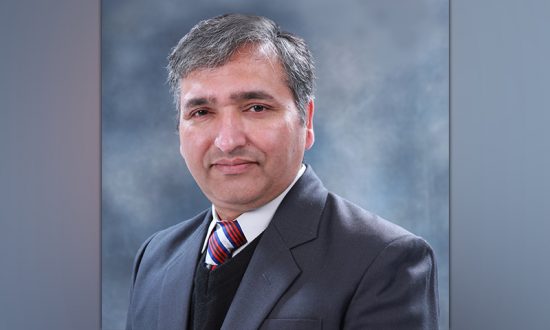Dr Rajesh Khanna is the President of NIIT University. He obtained his B.Tech, M.Tech & PhD in Chemical Engineering from IIT Kanpur, an institution that has been acknowledged as the nursery for nurturing students, shaping faculty into knowledge providers of repute & a mother institution for shepherding later institutions. He did post-doctoral research at Institut de Chimie des Surfaces et Interfaces – CNRS Mulhouse, France and was an Honorary Visiting Research Fellow, University of New South Wales, Sydney.
The onset of the pandemic has not only altered life as we know it, but educational institutions as well. More importantly, the crisis has left a generation of people feeling vulnerable and unsure, of what the future may hold. When COVID hit, campuses fell silent as students were asked to vacate and teaching shifted to online. This brought a major disruption in the educational system. Skills learned over decades, knowledge and experiences gained from people and institutions were being questioned. We were suddenly being exposed to increasing pressures for acquiring new skill sets, new knowledge, and new ways of interpreting the acquired knowledge. Confronted with lockdowns and issues such as social distancing, educational institutions across the country were forced to transition to an online mode of teaching and learning. While this method has allowed for some interaction between faculty and students, it is far from ideal. Replicating a classroom using communication tools like Microsoft Team and Zoom is just not enough when it comes to effective digital education. It appeared to work for a while because there was some academic engagement, but teachers struggled to keep their students’ focus on learning.
The pandemic has also had a significant impact on teachers’ roles. Teachers have been forced to make pedagogical changes to accommodate online classes. PowerPoint and audio-visual presentations slowly became the norm, and teachers, including senior instructors, were compelled to learn how to use technology in order to continue teaching classes post the pandemic. In order to retain their students’ attention, teachers were required to be creative in how they teach and engage with them. The traditional role of teachers has been disrupted, and teacher training in pedagogy as well as the use of modern tools and aids to make teaching more effective and engaging is required, for technology will continue to play an important role in education. Even as colleges are reopening slowly, learning via screen or remote learning will continue to be significant. Education digitization is the future, and we’ve been making significant progress in that direction even before the pandemic. The current COVID-19 crisis is a challenge to be overcome but it also presents an extraordinary opportunity. Students must now prepare for a world that requires not just newer skill sets but a completely new mindset— a mindset that allows them to acquire knowledge in various forms, apply it to situations where it has never been tested before, and ensure success.
Students have now grown accustomed to this new educational system. It’s been over a year, and it’s safe to assume that traditional methods of learning will have to evolve into a hybrid, blended model of learning that combines the best aspects of both physical classroom learning and digital learning. Virtual collaboration and communication among students, parents, and teachers have become an important component in adding value to studies, even when children are at home and away from campus. A comprehensive ecosystem that is a perfect blend of innovative tools and technologies for teaching-learning, with opportunities for socialization among peers and teachers in a physical natural setting, is urgently needed. Academics and teachers must discover material that they can transact both in classroom and in virtual environments in a significant and hybridized manner. They must unlearn old habits, adopt new technologies, alter their mental models and see themselves, students, and the academic ecosystem in a positive light. They must demonstrate humility, an unending thirst for knowledge, and the ability to adapt to newer demands in real time. As a result, universities will need to change directions and provide a blended learning system to their students that include a plethora of digital activities that can collectively deliver effective learning. This model can incorporate innovative pedagogies and technology-based teacher-student engagement. The National Education Policy (NEP2020) with a focus on technology provides a policy framework for this. Adopting a hybrid model that uses technology as a tool is the way of the future, and this is exactly what the NEP 2020 envisions.
Finally, the world will witness a new generation of young entrepreneurs and leaders who will redefine the concept and purpose of human development. This generation having experienced the tragedies of the pandemic will show everyone how to balance personal ambitions with public service. Furthermore, with technology at the forefront, curricula will need to be developed keeping the new-age technologies in mind. Because everything has shifted online, learning skills AI, ML, Cyber Security or Data Science will be a definite way of getting good job opportunities. The next generation of Indian universities must prepare to live in a world where hybridized ecosystems are the norm and address the needs of the youth in the today’s ever changing environment. The universities that understand and master this will survive and thrive.




